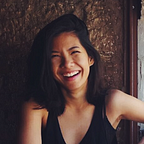Being a reluctant introvert in an extrovert’s world
If I have only one insight from the above line graph, it’s something I already know but begrudgingly accept: I’m an introvert (but I don’t want to be).
Having to be constantly interact with people drains me — even if I’ve enjoyed it. And feeling constantly drained takes a toll on my mental health (of course).
So what am I doing about it?
1. Accept that I’m an introvert even if I don’t really want to be.
What I read: ‘Quiet: The Power of Introverts’ by Susan Cain 👇🏼
So many books try to teach you to do more and be more. I really liked this book for how it made me feel like I had permission to embrace being an introvert.
Some of my biggest takeaways from it were:
- Many people that I admire are introverts: You don’t need to be an extrovert to succeed, be loved, or to be healthy. People like Rosa Parks, Albert Einstein and Eleanor Roosevelt were all introverts.
- So much of media portrays extroversion as #goals. I rarely stopped to question that, but this book made me do that.
- A strength of being an introvert is the natural inclination to reflect and think. So I’m started carving out intentional times at the start of my day to do that.
2. If I’m doing significant things that drain my batteries fast, I need to ensure I do things that fill it back up
Now that I see so clearly the correlation, for heavy call days, I set a later work start time for the next day.
I also carve out more alone time for myself. This is something that can be tricky to do when you work from home (and who isn’t these days?), or are in a lockdown of some sort.
Experiment results: 👍🏼👍🏼👍🏼
As a result of all this, I found that:
- I’m less stressed out than I would have previously been with the amount of social interaction I’ve had to do.
- I’m intentionally making more time for more rest after big days with many calls. I’m also able to plan my week a lot better instead of failing to see the last half of the week through because I’m too fatigued!
- I’ve also spent a lot less time lamenting the fact that I’m not an extrovert. This week has been different in that I’ve spent close to no time beating myself up for being the person that I am, yay!
If you had some questions about my little experiment; here are some answers to questions I’ve pre-empting that people might ask:
Do you really sleep that much?
- Yep, after going through so much chemo, I just seem to need much more sleep than before. 🤷🏻♀️
Do you wake up to an alarm?
- No, I sleep until I feel rested, and then I get up.
Have you accounted for any other factors?
- Somewhat. I had not set out to conduct this experiment intentionally. Instead, I had only arrived at a hunch there might be a correlation after the week was over. Luckily, I had very easy ways of seeing the histories of both my sleep and work meetings. Looking back, most days were remarkably similar across caffeine intake, exercise and stress.
Want to say hello? Say hi 💌 mel@bravely.io or on the 👋🏻 bravely discord.
